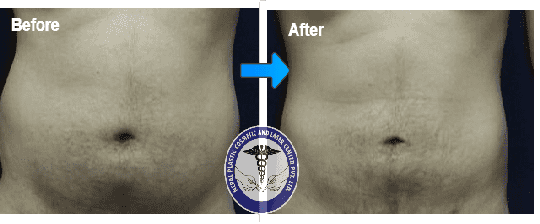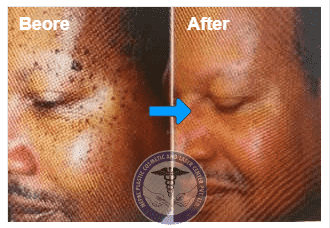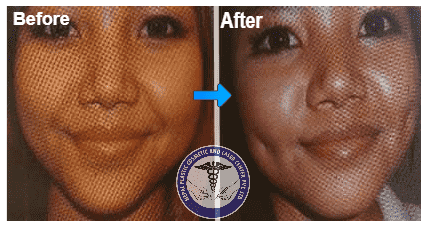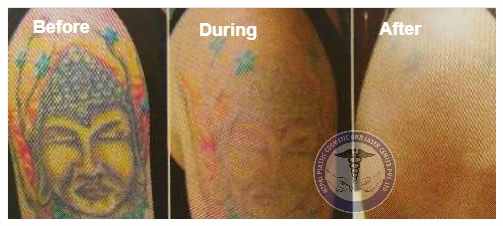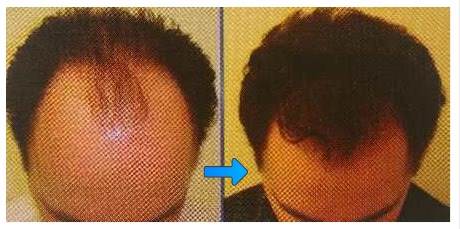Breast Reduction Surgery by NPCLC in Kathmandu, Lalitpur, Bhaktpur in Nepal
What is Breast Reduction Surgery?
Contents
Breast lift also known as Reduction Mammaplasty is a surgical procedure to remove excess breast fat, glandular tissue and skin to achieve a breast size more in proportion with your body.

Why is Breast Reduction Surgery done?
Breast Reduction Surgery is done to reduce the size of the breasts.
Disproportionately large breasts can cause both physical and emotional distress for patients. Patients with macromastia may experience physical discomfort resulting from the weight of their breasts. The resulting pain can make it challenging for some patients to perform common physical activities. Along with the physical ailments of macromastia, some patients may suffer from emotional distress or more significant mental health problems as a result of their large breasts.
Who are good candidate for Breast Reduction Surgery?
Breast Reduction Surgery is a very personal procedure and it should be done only if you want it yourself and not to fulfil someone else’s desire. Overly large breasts can cause health and emotional problems. In addition to self-image issues, you may also experience physical pain and discomfort. The weight of excess breast tissue can impair your ability to lead an active life. The emotional discomfort and self-consciousness often associated with having large pendulous breasts can be as important an issue as the physical discomfort and pain.
You are candidate for Breast Reduction Surgery if :
- You are physically healthy
- You have realistic expectations
- You don’t smoke
- You are bothered by feeling that your breasts are too large
- You have breasts that limit your physical activity
- You experience back, neck and shoulder pain caused by the weight of your breasts
- You have shoulder indentations from bra straps
- You have skin irritation beneath the breast crease
Who should not consider Breast Reduction Surgery?
- You are physically unhealthy.
- You are pregnant or breastfeeding.
- Your breasts are not fully developed.
What are the possible risk and complication of Breast Reduction Surgery?
Decision to undergo Breast Reduction procedure is deeply personal and you should weigh the potential benefits in achieving your goals with the risk and complication of Breast Reduction procedure. Only you can make that decision.
Possible Breast Lift Surgery risks include :
- Unfavorable scarring
- Infection
- Changes in nipple or breast sensation, which may be temporary or permanent
- Anesthesia risks
- Bleeding (hematoma)
- Blood clots
- Poor wound healing
- Breast contour and shape irregularities
- Skin discoloration, permanent pigmentation changes, swelling and bruising
- Damage to deeper structures—such as nerves, blood vessels, muscles and lungs—can occur and may be temporary or permanent
- Breast asymmetry
- Fluid accumulation
- Excessive firmness of the breast
- Potential inability to breastfeed
- Potential loss of skin/tissue of breast where incisions meet each other
- Potential, partial or total loss of nipple and areola
- Deep vein thrombosis, cardiac and pulmonary complications
- Pain, which may persist
- Allergies to tape, suture materials and glues, blood products, topical preparations or injectable agents
- Fatty tissue deep in the skin could die (fat necrosis)
- Possibility of revisional surgery
Things to know before Breast Reduction Surgery?
- Breast reduction surgery can interfere with certain diagnostic procedures
- Breast and nipple piercing can cause an infection
- Your ability to breastfeed following reduction mammaplasty may be limited; talk to your doctor if you are planning to nurse a baby
- The breast reduction procedure can be performed at any age but is best done when your breasts are fully developed
- Changes in the breasts during pregnancy can alter the outcomes of previous breast reduction surgery, as can significant weight fluctuations
- How should I prepare for Breast Reduction Surgery?
For the preparation of Breast Lift surgery:
- Get lab testing or a medical evaluation
- Take certain medications or adjust your current medications
- Get a baseline mammogram before surgery and another one after surgery to help detect any future changes in your breast tissue
- Stop smoking well in advance of breast reduction surgery
- Avoid taking aspirin, anti-inflammatory drugs and herbal supplements as they can increase bleeding
Special instructions you receive will cover:
- What to do on the day of surgery
- Post-operative care and follow-up
What to expect and what to do after Breast Reduction Surgery for a speedy recovery?
After Breast reduction surgery dressings or bandages will be applied in surgical site You’ll need to wear an elastic bandage or support bra to minimize swelling and support your breasts as they heal.
A small, thin tube may be temporarily placed under the skin to drain any excess blood or fluid that may collect. You will be given specific instructions that may include:
- How to care for your breasts following surgery
- Medications to apply or take orally to aid healing and reduce the potential for infection
- Specific concerns to look for at the surgical site or in your general health
- When to follow up with your plastic surgeon.
What result should I expect after Breast Reduction Surgery?
The result of your Breast Reduction Surgery is immediately visible. Overtime post-surgical swelling will resolve and incision lines will fade.
Satisfaction with your new image should continue to grow as you recover from surgery. The problems you had with overly large breast will disappear as your new breast size will help relieve you from the pain and physical limitations experienced prior to Breast Reduction Procedure. Your better-proportioned figure will likely enhance your self-image and boost your self-confidence. The result of Breast Reduction Surgery will be long-lasting. However, over time your breast can change due to aging, weight fluctuations, hormonal factors and gravity.


